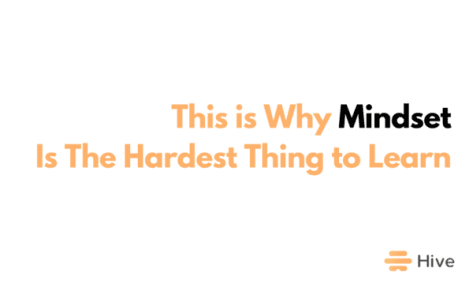A mindset is a way of thinking, a set of beliefs and attitudes that shape our thoughts and actions. It establishes how we view ourselves, the world around us, and our place within it.
Your mindset is your unique set of assumptions, mental models, attitudes, emotional responses, beliefs and perceptions about life and living it.
It’s shaped by our experiences, education, culture, and upbringing.
Our mindset influences our behaviour, including our attitudes towards challenges, ability to learn from mistakes, and willingness to take risks.
Your mindset can also impact your overall well-being, as your beliefs and attitudes can influence your emotions, stress levels, and mental health.
A positive mindset can lead to happiness, contentment, and overall well-being.
What you believe is what you see — your mindset determines your reality
Many of our beliefs and thought patterns are unconscious, meaning we may not even be aware of them. Identifying and changing these patterns is challenging without becoming more self-aware.
Developing a better mindset involves shifting your perspective and beliefs about yourself and the world around you.
A fixed mindset can lead to helplessness, frustration, and low self-esteem when faced with challenges or setbacks.
A growth mindset can foster feelings of optimism, resilience, and self-confidence. It values effort over talent or intelligence.
“In the fixed mindset, everything is about the outcome. If you fail — or if you’re not the best — it’s all been wasted. The growth mindset allows people to value what they’re doing regardless of the outcome. They’re tackling problems, charting new courses, working on important issues,” explains Carol S. Dweck, in her book, Mindset: The New Psychology of Success.
Rather than believing that success is based solely on innate abilities, focus on the effort you put in and the progress you make.
Adopting a growth mindset means viewing challenges as opportunities for growth and believing your abilities can be developed through practice, perseverance and hard work.
“Successful people don’t have any fewer problems than unsuccessful people; they just have a different mindset in dealing with them,” says John C. Maxwell.
Learning a mindset is the most difficult skill we can develop in life. It takes a certain level of maturity, resilience, and self-awareness to understand how our thoughts and feelings can shape our view of the world and our overall success in life.
It can be hard to let go of what we have been conditioned to believe. Understanding that our mindsets directly impact our lives requires a shift in perspective and a commitment to changing our habits and behaviors.
Every mindset evolves — but you can consciously control the process
Albert Ellis was right when he said, “The best years of your life are the ones in which you decide your problems are your own. You do not blame them on your mother, the ecology, or the president. You realize that you control your own destiny.”
Your mindset is constantly evolving, whether you are aware of it or not. However, you can consciously control the process.
Learning how to upgrade our mindset involves confronting our fears, anxieties, and doubts. It means facing the hard truths about ourselves and our lives.
It also means confronting our biases, questioning our beliefs, and stepping outside our comfort zones.
It requires us to take responsibility for our own lives, to be open to change, and to be willing to challenge ourselves.
Steve Maraboli was right when he said, “Once your mindset changes, everything on the outside will change along with it.”
How to deliberately upgrade your mindset
“Your mind is its own food in the appetite to success.” ― Anthony T. Hincks
The first step is to become aware of your current mindset and how it may be limiting you. That requires a willingness to question your beliefs and assumptions about yourself and the world around you.
Next, you can actively seek new experiences and knowledge that challenge your mindset. That means exposing yourself to diverse perspectives, taking on new challenges, and learning new skills.
Engage with people who have different backgrounds, experiences, and viewpoints than you. That’s how you expand your understanding of the world and challenge your existing beliefs. You can quickly start doing that by reading great books by diverse authors.
Practice self-reflection. Take time to reflect on your thoughts, emotions, and behaviors. Ask yourself questions like “Why do I believe what I do?” or “What assumptions am I making in this situation?”
It will help you identify areas where your mindset may limit you.
Remember that mindset evolution is a continuous process that requires patience, self-awareness, and a commitment to personal growth.
Changing deeply ingrained thought patterns and beliefs can be difficult and may require sustained effort and practice.
But it’s worth it, especially if you are keen on changing your life. Getting anything worthwhile in life begins with a better mindset.
With the right mindset, we can approach life with purpose and optimism and achieve tremendous success and fulfillment in all areas of our lives.
Finally, remember, what Anthony T. Hincks said, “Your mind is its own food in the appetite for success.”
